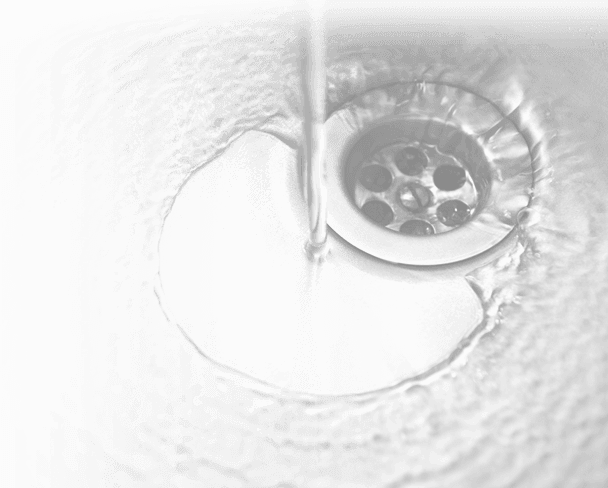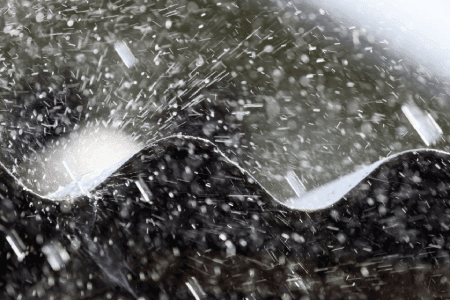Can Too Much Rain Cause Plumbing Problems?
After a long dry period, there is nothing more pleasant than the calming smell of rain. However, a heavy downpour can wreck your plumbing system, especially if your property isn’t well equipped to withstand the excess water intake. Although you might feel confident that your pipes are in excellent condition, extreme external forces can create some issues. The best way to avoid plumbing problems resulting from heavy rain is by correcting them once they arise. Watch out for the following plumbing issues that may occur because of too much rain.
1. It Causes Pipes and Drain Blockage
Rainwater flows along with sticks, leaves, soil particles, and other trash, depositing this detritus into your sewer system. The buildup of such debris can clog your drains and pipes. Your bathtub or sink will thus begin to drain slowly, and you may also notice an awful odor coming from the drain channel.
If you spot such signs, first try unblocking the drains using a plunger. Clear off any debris from your gutters, rooftops, and around the drains to keep your downpipes flowing efficiently. If the problem continues, seek professional help from an experienced plumber.
2. Too Much Rain Can Lead to Yard Floods
Heavy downpours cause too much water to accumulate in the lowest points of your yards. This problem mainly affects houses lying on uneven ground or in areas with poor drainage. It’s worth noting that water accumulation along the driveways, walkways, or the basement steps may compromise your property’s stability. Besides, basement or crawl space floods can ruin your furniture, encourage mold growth and cause wood to rot.
In case of floods, the cost to repair your damaged home and the risk to your family members’ health can significantly add up. To prevent flooding, keep the storm drain clear from clutter to drain excess water from impervious surfaces.
You can also use a sump pump or a wet vac to remove the water as soon as possible. Once you drain the water, dry the basement thoroughly. Don’t allow the space to air dry since it can lead to moisture accumulation. In extreme cases, you can use a dehumidifier to remove excess moisture.
3. It Can Cause Pipes to Burst
Heavy rainfall causes soil to shift, offering less support to the underground pipes, which weakens them. If your pipes bend in the wrong position, they are more likely to crack. Rain also turns sand into heavy mud, and the increased weight sitting on the pipelines can cause them to break. This problem mainly affects older or fragile plumbing systems. Even for newly installed pipelines that seem to be in excellent condition, you can never predict the exact amount of pressure the heavy rains can cause on your plumbing line.
Some signs of leaky pipes include low water pressure, water discoloration, or debris coming out of your faucet. When you notice any such indications, it would be best to replace or repair the pipes immediately to avoid more problems. Experienced plumbers handle such tasks better since they can easily detect minor leaks and fix them before they escalate to major issues.
4. Too Much Rain Causes Backup in Pipes
Heavy rains also affect the sewer line causing backup problems. The accumulation of buildup and high water levels in the municipal sewers overloads the sewer system, and the wastewaters may begin to flow back to your home. When a backup happens, it can bring hazardous materials into your house that can compromise your family members’ safety.
Sadly, at times, backup from city sewer lines might be beyond you, and there is little that you can do but wait for the storms to end so that the water level returns to normal. Still, if you live in areas prone to sewer backups, there are a few preventive measures that you can consider.
First, have a plumber install check valves in your basement plumbing fixture to prevent water from flowing backward. Also, install a sump pump to eliminate excess water.
5. Rainstorms Cause Septic Tank Floods
Too much rain oversaturates the soil around your septic tank, causing it to flood. Excessive water on the ground limits the drain field’s ability to release the waste liquid from your house drains into the soil. The water then collects in the septic tank, filling up to dangerous levels that cause floods. Because of the increased pressure on the tank, the water has nowhere else to go, and it may begin backing up into your house.
Flooded septic can also contaminate water sources with raw sewage. Common signs of a flooded septic tank include pungent odors around the tank, overflowing wastewaters, and gurgling sounds in the plumbing system.
When your septic tanks become flooded, it limits the ability to hold household water. When you suspect a septic tank flood, reduce the number of times you flush the toilet or shower and only run the dishwasher or washing machine when full. Also, avoid contact with any standing water since it may contain sewage.
Call in your professional plumber immediately to make some adjustments to the tank. A professional may also impose water usage restrictions based on the problem’s extent till the drain fields completely dry off. To prevent septic tank flooding, you can also plan for regular maintenance before the rains’ onset.
6. It Overworks the Sump Pump
A sump pump’s main task is to pump out excess water from your basement to protect your property. When the water rises to a particular range, the sump pump automatically turns on to drive the water out. The more the rainfall, the harder your sump pump works, and excess water might overwork it. Prolonged use of a single sump pump at such a state will cause wear and tear and eventually breakdowns.
Additionally, since the rainwater carries much debris, it may clog the sump pipeline and switches, so it would be best to select the correct sump pump type based on your location. You can have a professional plumber choose and install the right sump pump size for increased efficiency. Also, plan for sump pump maintenance in early spring to ensure that it’s in the proper working condition.
Summing up
When heavy rains hit, they not only cause disruptions to your daily activities but can also affect your plumbing system. You can put into place several measures to prepare your plumbing lines for a heavy downpour. For instance, consider upgrading a portion of your plumbing system to accommodate excess water. While there are some simple adjustments that you can make, some other tasks require a professional approach.
If you encounter a cracked pipe, clogged drain, pipe burst, or flooding because of poor drainage, immediately call a professional plumber. You can always reach out to Reactive Plumbing. We aim to exceed all of our clients’ expectations, and we serve across Sydney and the surrounding regions.
Our company offers tap repair, backflow prevention, drain relining, tap mixer installation, CCTV drain inspection, and burst pipe repairs. We also deal with bathroom plumbing services, gas fitting and installation, gas leak repairs, hot water installations, toilet repairs and replacement, and more. Call our friendly representatives today to schedule an appointment.

SCHEDULE WITH US TODAY
Page Form


